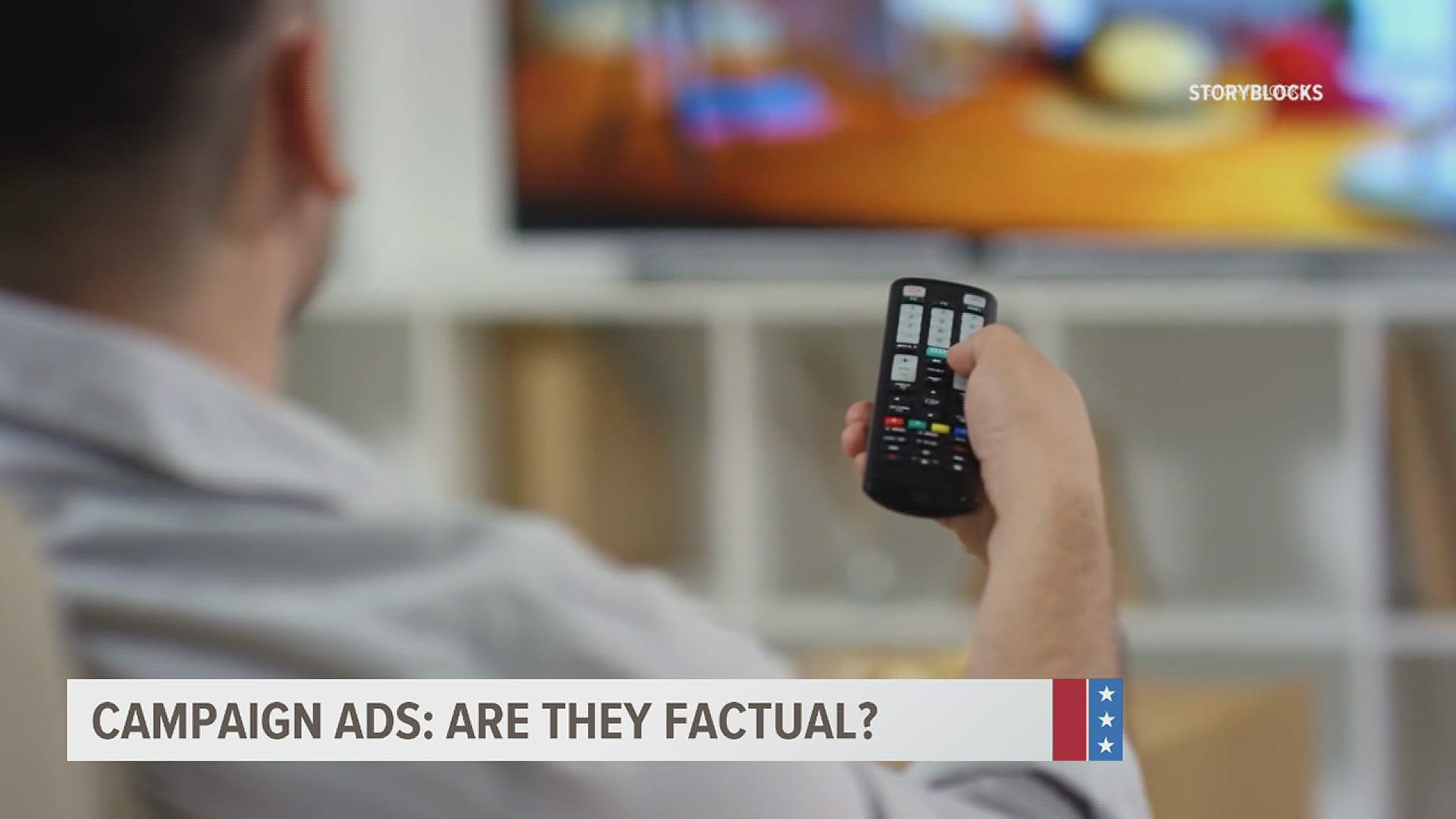HARRISBURG, Pa. — Political ads crowding Pennsylvania airwaves and social media accounts make a lot of claims. Among them are that John Fetterman is a “far-left tax-raising fraud” and that Dr. Mehmet Oz “is spreading lies on TV.”
The Federal Trade Commission (FTC) requires truth in advertising, meaning the content is “truthful, not misleading, and, when appropriate, backed by scientific evidence.”
Political ads, however, are protected by the First Amendment and do not come under the same requirements.
”When we move to campaigns, it’s protected speech, and the Supreme Court has maintained that candidates are allowed to lie in candidate ads,” said Alison Dagnes, a political science professor at Shippensburg University.
In fact, public broadcast channels that use public bandwidth must offer equal opportunity to all candidates to purchase ad time. The Federal Communications Commission (FCC) requires broadcasters to air unfiltered candidates’ ads, regardless of whether they make misleading claims.
Other outlets, such as cable outlets that do not use public bandwidth for broadcasting, have less strict regulations. They can reject ads deemed to be misleading.
That said, outright lies are less common than spin, or sometimes misinformation.
“Spin is when you take a story and you’re trying to put it in the best light possible,” Dagnes said. “Misinformation consists of falsehoods and lies that are spread on purpose in order to try and deceive a segment of the population.”
Pennsylvania’s Senate and gubernatorial elections are full of all three.
One example: an ad made by the MAGA, Inc. Super PAC claims that “John Fetterman wants ruthless killers, muggers and rapists back on our streets, and he wants them now.”
“That’s definitely a lie,” Dagnes said. “I’m not sure that there’s really any candidate out there that’s in favor of crime.”
The MAGA, Inc. super PAC was created in September by allies of former President Donald Trump. The same ad adds, “John Fetterman is dangerous,” while another ad made by the Shapiro for Pennsylvania PAC says that Doug Mastriano is “a dangerous risk to Pennsylvania.”
Dagnes’ verdict: “Dangerous is one of those words that’s really in the eye of the beholder.”
Several ads, including one by anti-Trump Super PAC MeidasTouch, called Dr. Mehmet Oz a “quack,” which Dagnes said was a way to spin the heart surgeon’s record on his TV show.
Voters don’t have many options to hold ad makers responsible for misleading or false claims. They can choose to reward or punish candidates for ad choices for which the candidates approved and paid. Many ads, though, are run by Super PACS, where it’s unclear who sponsored any misleading claims.

